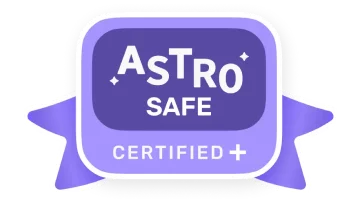Facts for Kids
The Crusades were a series of religiously motivated military campaigns initiated by Christian states in Europe, aimed primarily at reclaiming the Holy Land from Muslim rule.
Overview
Political Impacts
Cultural Exchanges
Military Strategies
Religious Motivations
Legacy Of The Crusades
Major Figures Involved
Historical Interpretations
Key Events Of The Crusades

Inside this Article
Third Crusade
First Crusade
Middle East
Territory
Jerusalem
Interest
European
People
Muslim
Did you know?
💔 The Fourth Crusade, launched in 1202, infamously resulted in the sack of Constantinople, a Christian city.
📜 The Crusaders established a number of Latin Christian states in the Eastern Mediterranean, including the Kingdom of Jerusalem.
🏰 Many of the Crusader states were short-lived and faced constant pressure from Muslim forces.
🔍 Not all of the Crusades were focused on the Holy Land; some, like the Northern Crusades, targeted pagan populations in Eastern Europe.
🤝 Some Crusades involved alliances with local leaders, despite the overarching Christian-Muslim conflict.
📈 The Crusades had far-reaching effects on trade, culture, and the relationship between the Christian and Muslim worlds.
🎨 The legacy of the Crusades can still be seen in modern politics, religious relations, and cultural perceptions of the Middle East.
⏳ The Crusades spanned nearly 200 years, from the late 11th century to the late 13th century.
⚔️ The Crusades were a series of religious wars initiated by European Christians to reclaim the Holy Land from Muslim control.
🕌 The First Crusade began in 1096 and was a significant military campaign resulting in the capture of Jerusalem in 1099.
Introduction
They were mainly fought between Christians in Europe and Muslims in the Middle East. The main goal of the Crusades was to take control of Jerusalem, a holy city for both religions. The Crusaders journeyed many miles, crossing seas and mountains, to fight for their beliefs. There were many battles! Some famous ones include the Siege of Jerusalem in 1099 and the Battle of Hattin in 1187. The Crusades shaped history and how people viewed religion! 🏰✝️☪️
Political Impacts
This power shift changed European politics! The Church became more powerful too, as it controlled many knights and resources. However, after many failed Crusades, kings in Europe realized they needed to balance power with the Church. Some rulers, like King John of England, faced rebellions due to heavy taxes raised for the wars. The Crusades united or divided different groups in Europe and the Middle East, leaving a lasting effect on geopolitics! ⚔
️🏰
Cultural Exchanges
️ When the Crusaders reached the Middle East, they encountered new ideas, foods, and inventions. For example, they learned about math from Muslim scholars and spices from traders! 🌶
️ The introduction of new crops, like sugar and rice, changed European diets. The Crusaders also took home beautiful silk and ceramics. In return, knowledge about European customs traveled to the Middle East. The blending of cultures made art, science, and music flourish! So, while there was fighting, there were also connections made and lessons learned between people! 🎨📚
Military Strategies
They relied on knights, who were heavily armored and fought on horseback. The Crusaders organized themselves into groups with leaders to attack together. On the other hand, Muslim fighters, like Saladin’s army, used quick movements and clever tactics, often using the environment to their advantage. ⚔
️ The battles could be fierce with siege weapons like catapults and towers! Innovations during the Crusades influenced military techniques in both Europe and the Middle East for years to come! 🛡
️
Religious Motivations
They felt it was a sacred mission from God! On the other hand, Muslims wanted to protect the holy sites and their territory from the Crusaders. The church promised forgiveness of sins to those who fought, which motivated many knights to join the battles! Some even wore crosses on their shields to show their faith. The battles turned into a holy struggle, and both sides believed they were fighting for what was right! 😇✝️☪️
Legacy Of The Crusades
️ They changed the relationship between Christians and Muslims, leading to tensions that sometimes persist. The Crusades also sparked interest in adventure and exploration! Many stories, books, and movies about knights and battles began, inspiring people all over the world. ✨
They encouraged trade between Europe and the Middle East, which led to new ideas, goods, and cultures mixing. The legacy of the Crusades shows us how battles for belief can lead to connections, positive or negative, between people throughout history! 📖🌍
Major Figures Involved
There’s also Pope Urban II, who started the First Crusade by calling for knights in 1095. Another notable figure is Frederick Barbarossa, a German king who joined the Third Crusade but sadly drowned on his journey. These leaders played key roles in the successes and challenges faced during the Crusades! 🌟
Historical Interpretations
Some scholars argue that they led to more cultural exchanges, while others focus on the violence and suffering of those involved. Additionally, people from various backgrounds interpret the Crusades through their beliefs. For instance, in Christian narratives, they are often painted as heroic quests, while Muslim interpretations may focus on defending against invaders. Understanding these multiple perspectives helps us learn from history and find common ground! 🌈📚
Key Events Of The Crusades
In 1099, they succeeded and captured the city! The Second Crusade began in 1147 but wasn’t as successful; they lost many battles. The Third Crusade, from 1189 to 1192, was led by famous kings like Richard the Lionheart of England. ⚔
️This crusade ended without capturing Jerusalem again, but it allowed pilgrims to visit. The final major Crusade, the Ninth, happened in 1271 and ended in 1291 with the fall of Acre, marking the end of the Crusades era.

